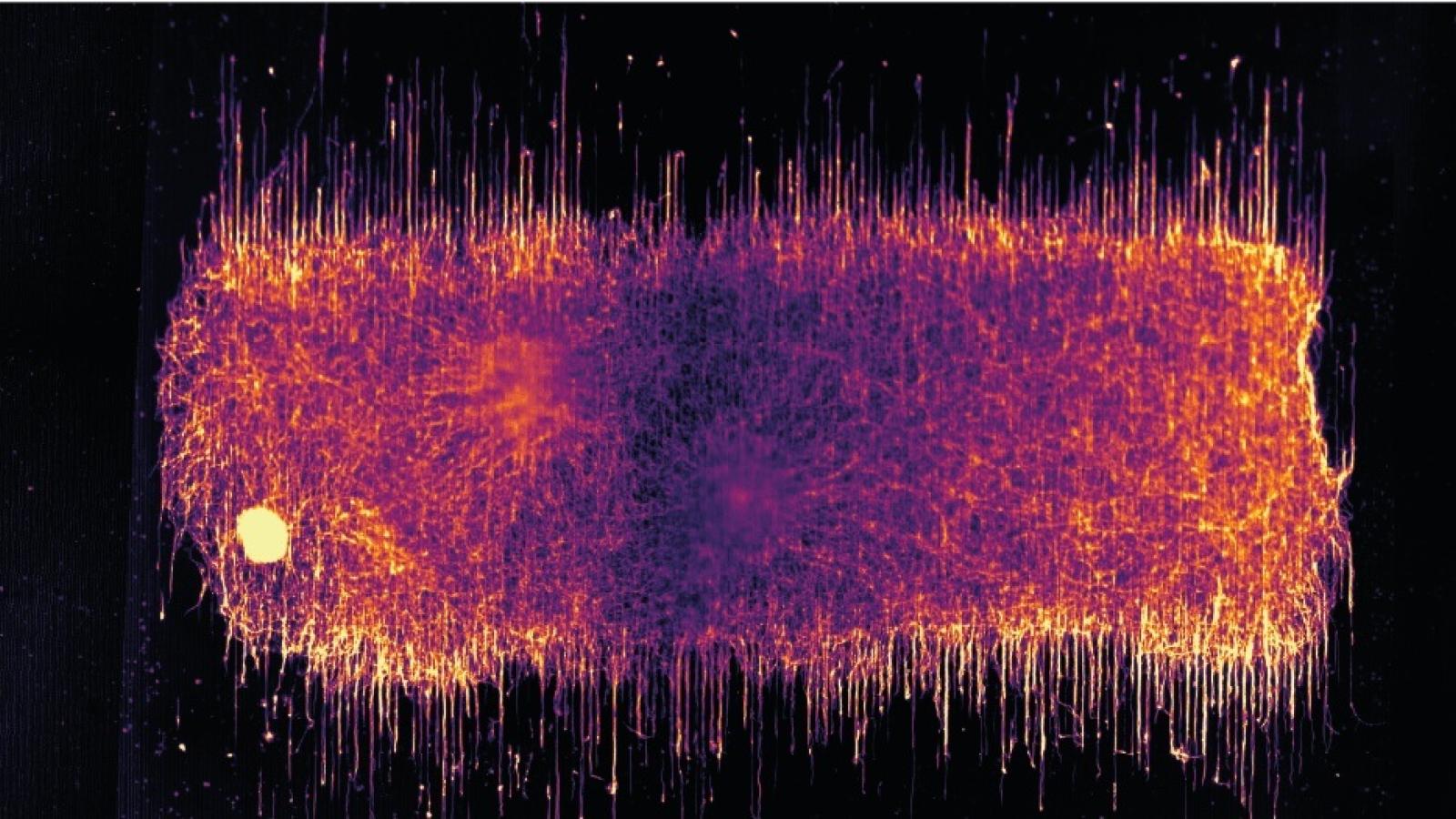Scientists led by Dr Andrea Serio (UK DRI at King’s) have developed a process that enables the creation of custom cell culture devices. This pipeline has been published today in PLOS Biology and is available as an open source on GitHub.
Cell culture devices, such as microwells and microfluidic chips, provide support to the physical environments for cells in the laboratory setting. These devices enable scientists to observe how cells grow and interact with each other under different test conditions.
Wet labs currently have to use commercially developed microdevices, which are expensive and don’t allow for any customisation, narrowing the scope of research that can be undertaken, or they need to have both the expertise and access to the equipment to produce their own. The latter option offers the possibility of creating bespoke designs, but access to the right equipment, expertise and sometimes cost, poses a significant barrier to entry.
To address these limitations, Dr Serio's team used their expertise in bioengineering and microfabrication coupled with commercially available low-cost instruments to create a pipeline called SOL3D (Soft-lithography on 3D vat polymerised), which allows them to design and make high-resolution customisable devices in a flexible, easy and accessible way.
The pipeline is cheaper, versatile & highly reproducible
The SOL3D pipeline not only bridges the gap between biology and physics but also promotes open research and democratises the use of microdevices.Dr Cathleen HagemannUK DRI at King's
With this pipeline, any lab can use widely available desktop 3D printers and printing materials (resins) to create a custom “mould” to produce a cell culture device. The pipeline can be adapted for various research needs as it was developed by testing various printers and resins on multiple cell types.
The researchers developed custom microdevices in their research into the relationship between nerve length and its function. They recognised the need to create custom microdevices for the cells to grow longer than what was possible with commercial platforms. Over 8 research groups worldwide have already adopted this pipeline for their work, even when the paper was still at the preprint stage.
Co-first author Cathleen Hagemann, UK DRI at King's, said:
"The SOL3D pipeline not only bridges the gap between biology and physics but also promotes open research and democratises the use of microdevices. It may bring down the price of each experiment and allow researchers worldwide to be more creative. You can create the right microdevices for your experiment instead of limiting your experiment to what’s currently available."
Dr Serio joined the UK DRI at King’s in 2023, bringing his motor neuron disease (MND) and RNA expertise. With funding from the UK DRI, he will be opening a microfabrication facility at the Maurice Wohl Neuroscience Institute at King’s Denmark Hill campus, in early 2024.
Dr Serio said:
"The new microfabrication facility will promote collaborative research across the university. We will be able to create new and better cell models to answer various research questions and accelerate progress. My group will be providing expertise and expanding beyond our work on Motor Neuron Disease."
To find out more about Dr Andrea Serio's research, visit his UK DRI profile.
Article published: 13 March 2024
Banner image: Serio lab
